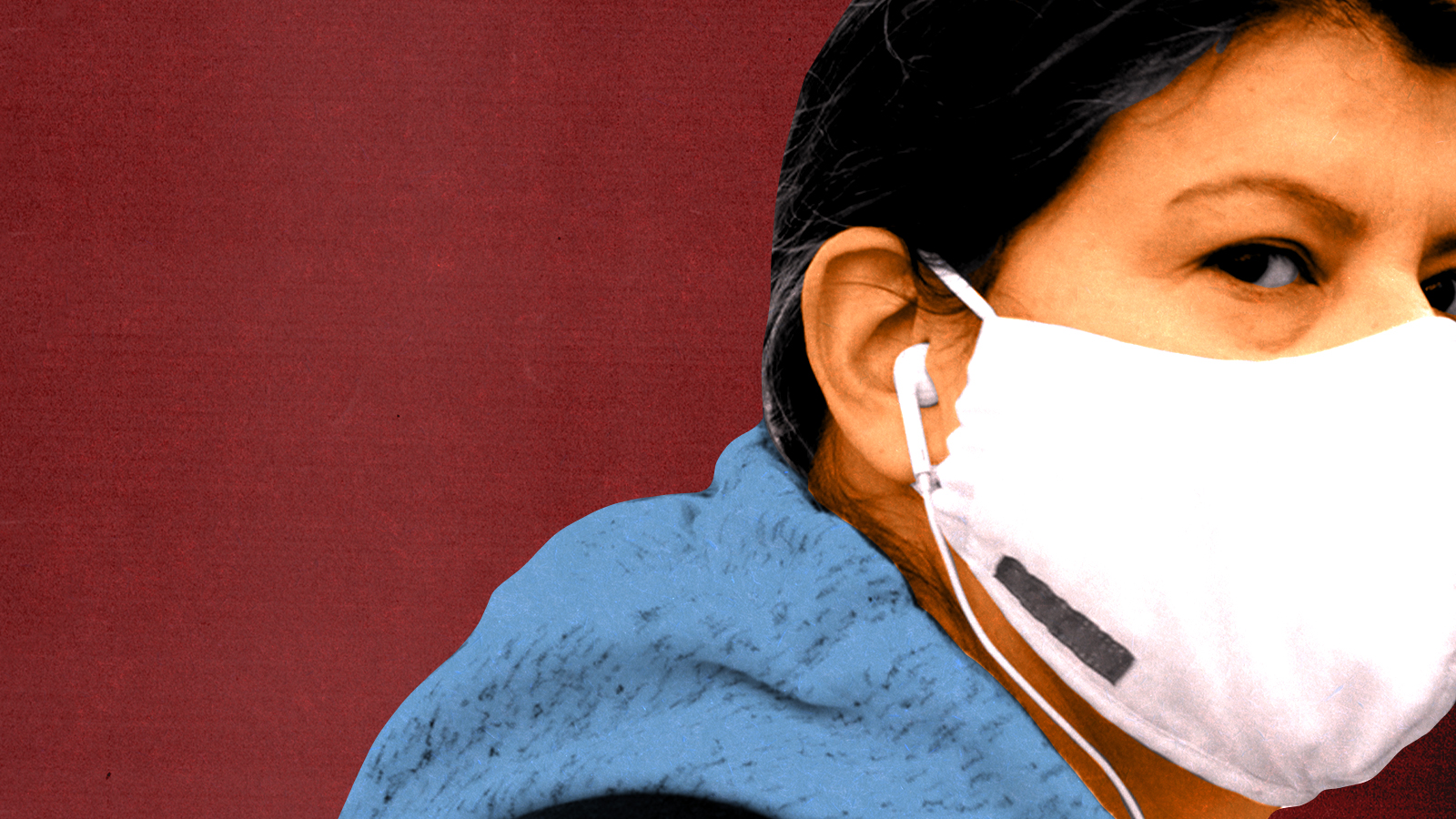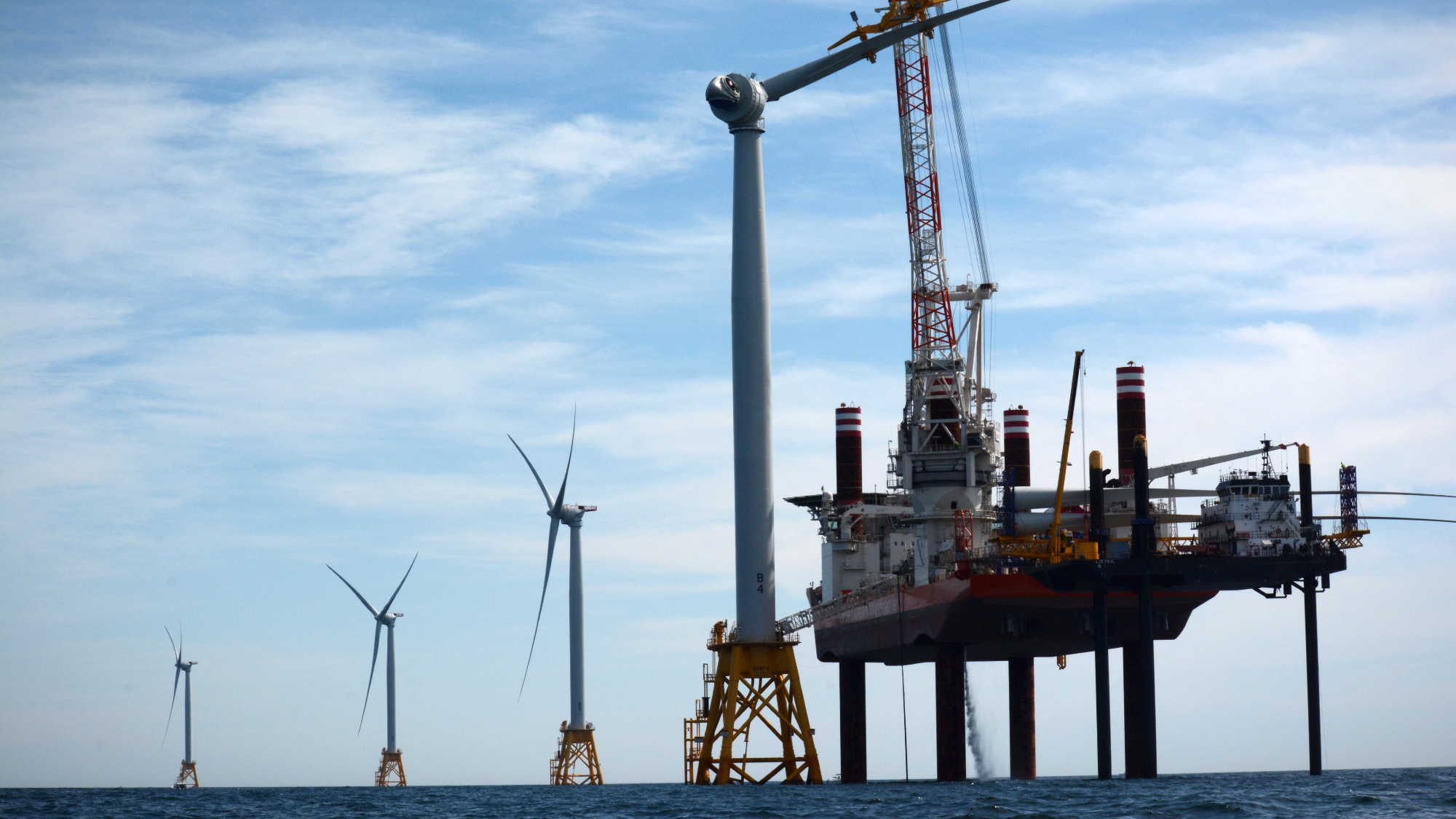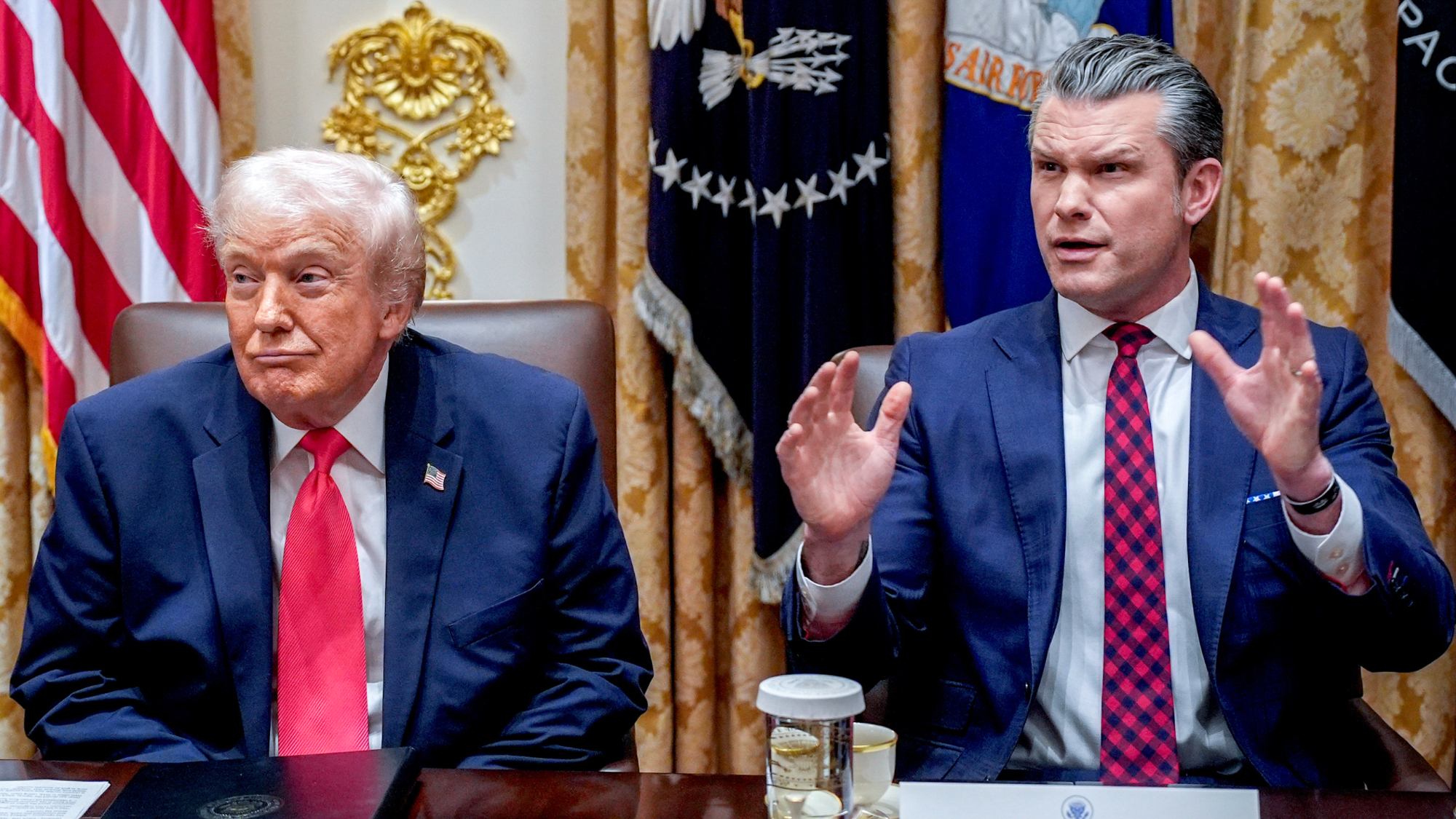What we risk — and risk losing — in the 3rd COVID year
What's the price of feeling safer — even if you aren't?


A free daily email with the biggest news stories of the day – and the best features from TheWeek.com
You are now subscribed
Your newsletter sign-up was successful
The COVID-19 pandemic began, for me, on Tuesday, March 10, 2020.
I'd first written about "the novel coronavirus," as we were calling it, in late February, when Carnevale ended early in Venice. The disease felt distant then; my husband and I had bought our bucket of lentils, but we didn't seriously anticipate more than a couple months' disruption. After all, there had been epidemics before — SARS, Ebola, that other respiratory thing that wasn't SARS — which never seemed to reach daily life for the vast majority of Americans, us included.
So on Sunday, March 8, we went to church as usual. I joked about COVID on Instagram. But by the next morning, we learned multiple COVID cases had been confirmed in our state. Sports cancellations started. Restaurants began to close. The World Health Organization declared a pandemic that Wednesday. A week later, our governor shuttered schools "for at least eight days." I guess this is a real thing, we said to our friends. I guess it's happening.
The Week
Escape your echo chamber. Get the facts behind the news, plus analysis from multiple perspectives.

Sign up for The Week's Free Newsletters
From our morning news briefing to a weekly Good News Newsletter, get the best of The Week delivered directly to your inbox.
From our morning news briefing to a weekly Good News Newsletter, get the best of The Week delivered directly to your inbox.
And so it did. Today we find ourselves at the start of the third year of COVID, measured by that mark, with a strange mishmash of restrictions and norms and an acute new crisis in Europe drawing our attention away from the chronic one here. The looming question now is not whether the pandemic will happen but how it will end — or if it has ended already? — or if it can end at all? Will we keep the rules we made forever?
I discussed pandemic measures in connection to our response to the 9/11 attacks in May of 2020, and I think the comparison remains useful now. One value is in the contrast: For most of us who neither lived in New York, Washington, or Pennsylvania nor personally lost someone to the attacks, 9/11 was a single day. Yes, there were those scares about anthrax and the lingering worry that any public space could be hit next. But in retrospect, it was a day, and then it was the aftermath, both awful but clearly demarcated. A new era begun in mere hours.
With COVID, however, the bounds of the crisis itself are a point of deep contention. Some speak of COVID in the past tense. For others, that word choice announces membership in a "death cult."
Another contrast is in what we know. We were surprised by 9/11, and the policy response was predicated on the attacks' secrecy and malintent: Some unknown bad people were out there (or in here!) plotting to do some unknown evil to an unknown group of us, and our government's mass surveillance, airport security, and invasions were supposed to find and stop them.
A free daily email with the biggest news stories of the day – and the best features from TheWeek.com
But COVID is not likewise secret or malicious, and we all have the data. We can all get numbers on how many people are infected and dying daily from the national level on down to our county, or even neighborhood. There's no color-coded threat chart handed to us from on high. We can all make our own risk assessments — assessments that, especially 24 months in, vary very widely.
Thus it's not impossible to answer the questions I've raised. On the contrary, we are awash in answers. Everyone has their own. And if we're only talking about how, when, and whether the pandemic can end, perhaps that doesn't matter. Reasonable people can disagree about many things in good faith. Here's one more for the pile.
But it matters for the rules, and the degree to which it matters rises in proportion to the scope and authority of those rules, which means it matters a great deal when the rules in question are laws, executive orders, and other mandates enforced by our federal government, the single most powerful state on Earth. My final question, then, could be refined. Not: Will we keep the rules we made forever? But: Whose risk assessment will decide if we keep these rules?
Last month, I took a trip, my first real vacation in three years thanks to a combination of the pandemic and having 2-year-old twins. It was good, restful — until the journey home, a miserable safety charade staged by the United States government.
First, Customs. An enormous room with more people than patience. Ceilings too low and Border Patrol staff too few, though the volume of travelers (and the staff needed to process us) could've been precisely determined in advance.
Then we retrieved our checked bag only to immediately recheck it. What's the security rationale for giving travelers mid-journey access to their luggage? Beats me! But we got it, lugging the bag we paid not to lug while also lugging (did I mention?) twin toddlers.
Last, the peak absurdity: Though we'd stayed inside security that whole time — after a screening apparently adequate to let us into the country and permit us to touch our checked bags at will — we were herded to a third line, a line of easily 1,000 people, to be screened by the TSA again.
But why? Why are we still doing this? The TSA's incompetence, corruption, indecency, cruelty, and deception have all been reported ad nauseam. Why is it still with us, 20 years on, with no apparent avenue for meaningful reform?
Some of it is that organizations of more than 50,000 people aren't easily disbanded. But the real force behind the TSA's continued function is not inertia but a constant, nagging, T-shirt-tag-itch fear: What if we scale down airport security and there's another 9/11? Do you want to die? Are you asking other people to risk their lives because you find it inconvenient to take off your shoes? To put your laptop in a box? Because you really wanted to keep drinking your water? Because you chose to take your whiny kids on vacation and then decided it was just too much trouble to take one hour out of an entire week to deal with a simple process to prevent mass death? Do you really think it's worth the risk?
As a matter of fact, I do. I do think we should get rid of the TSA and return to less invasive models of airport security, like those we had before 9/11 and which many other countries retain to this day. I think we'd sacrifice little to nothing in security (Americans wildly overestimate TSA effectiveness, despite all that reporting) and gain a lot in privacy, liberty, and ease, all of which are real goods worth preserving.
But my risk assessment isn't making the rules. And you can imagine — not that you need to, because it actually happened — how those fearful questions can be repurposed to prolong COVID measures long-term, even after risk assessments should change, after ever more people decide the pandemic is indeed over, after a third year of COVID. Or after 20.
Bonnie Kristian was a deputy editor and acting editor-in-chief of TheWeek.com. She is a columnist at Christianity Today and author of Untrustworthy: The Knowledge Crisis Breaking Our Brains, Polluting Our Politics, and Corrupting Christian Community (forthcoming 2022) and A Flexible Faith: Rethinking What It Means to Follow Jesus Today (2018). Her writing has also appeared at Time Magazine, CNN, USA Today, Newsweek, the Los Angeles Times, and The American Conservative, among other outlets.
-
 How the FCC’s ‘equal time’ rule works
How the FCC’s ‘equal time’ rule worksIn the Spotlight The law is at the heart of the Colbert-CBS conflict
-
 What is the endgame in the DHS shutdown?
What is the endgame in the DHS shutdown?Today’s Big Question Democrats want to rein in ICE’s immigration crackdown
-
 ‘Poor time management isn’t just an inconvenience’
‘Poor time management isn’t just an inconvenience’Instant Opinion Opinion, comment and editorials of the day
-
 Gabbard faces questions on vote raid, secret complaint
Gabbard faces questions on vote raid, secret complaintSpeed Read This comes as Trump has pushed Republicans to ‘take over’ voting
-
 The billionaires’ wealth tax: a catastrophe for California?
The billionaires’ wealth tax: a catastrophe for California?Talking Point Peter Thiel and Larry Page preparing to change state residency
-
 Bari Weiss’ ‘60 Minutes’ scandal is about more than one report
Bari Weiss’ ‘60 Minutes’ scandal is about more than one reportIN THE SPOTLIGHT By blocking an approved segment on a controversial prison holding US deportees in El Salvador, the editor-in-chief of CBS News has become the main story
-
 Trump unveils new ‘Trump class’ US warships
Trump unveils new ‘Trump class’ US warshipsSpeed Read
-
 Trump halts wind power projects, citing ‘security’
Trump halts wind power projects, citing ‘security’Speed Read
-
 Hegseth’s Signal chat put troops in peril, probe finds
Hegseth’s Signal chat put troops in peril, probe findsSpeed Read The defense secretary risked the lives of military personnel and violated Pentagon rules, says new report
-
 Has Zohran Mamdani shown the Democrats how to win again?
Has Zohran Mamdani shown the Democrats how to win again?Today’s Big Question New York City mayoral election touted as victory for left-wing populists but moderate centrist wins elsewhere present more complex path for Democratic Party
-
 Millions turn out for anti-Trump ‘No Kings’ rallies
Millions turn out for anti-Trump ‘No Kings’ ralliesSpeed Read An estimated 7 million people participated, 2 million more than at the first ‘No Kings’ protest in June
